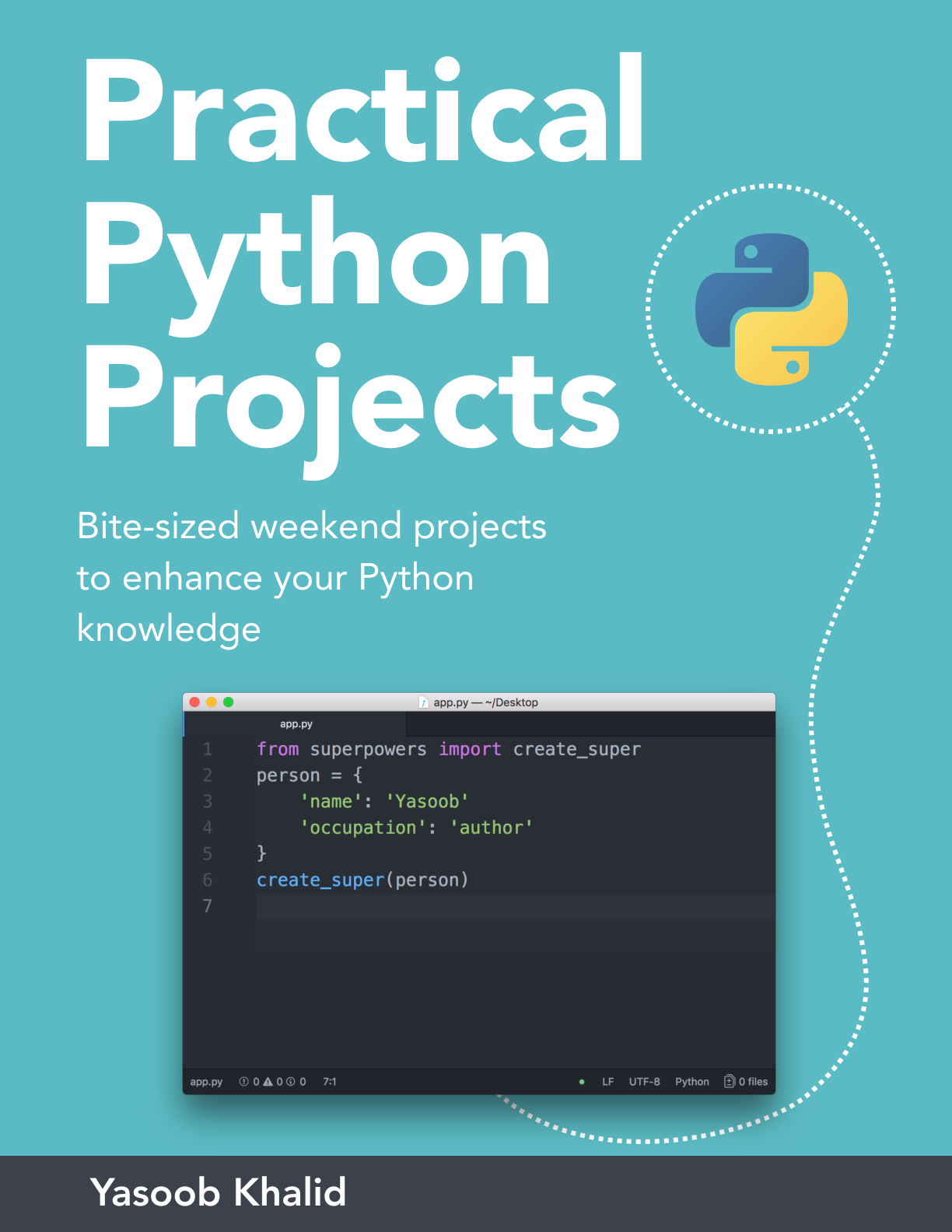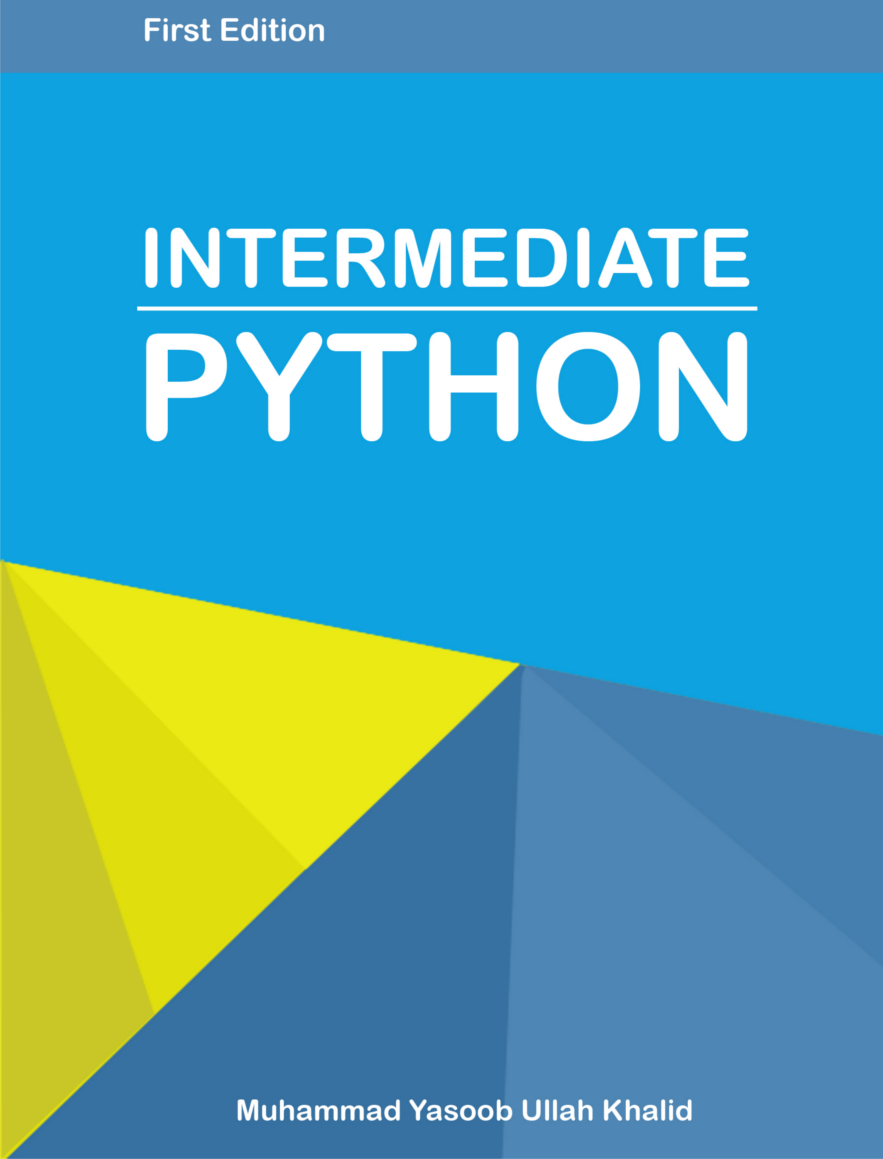Monthly Roundup: February 2018
Hi guys!
I hope you are all doing well! I am back with the a curation of the best articles, news and trending GitHub projects from February 2018. If you come across any articles, news, projects in March which you feel like should be a part of the next newsletter please reach out to me. I will love to add them to the list!
I hope you enjoy this issue. If you do please share it with your social circle!
See you at the end of this month!
~ Yasoob
Meetups
1. [Online] PyCon Colombia Packaging Tutorial
A friend of mine, Daniel (PyDanny), and his wife, Audrey, are running a workshop in Medellin, Colombia. You guys might know him from his Two Scoops of Django series. You can either become a part of this workshop online or in person if you are in Medellin.
Discussion
1. University switching from teaching c++ to python
Articles & News
1. How to write a Discord bot in Python
In this tutorial, you’ll learn to create a simple Discord bot with Python. In case you don’t know what Discord is, it is a Slack-like service aimed at gamers essentially. In Discord, you can join multiple servers, and you must have noticed that these servers have many bots. These bots can do a lot of things, from playing music for you to simple chat moderations. I was really fascinated by these bots, so I decided to write one of my own using Python. So, let’s jump right in!
2. JupyterLab is ready for users…
JupyterLab is Ready for Users We are proud to announce the beta release series of JupyterLab, the next-generation web-based interface for Project Jupyter. tl;dr: JupyterLab is ready for daily use (installation, documentation, try it with Binder) JupyterLab is an interactive development environment for working with notebooks, code, and data.
3. Controlling Your System Using Alexa (Tutorial)
I wanted to develop such a skill which was not available online and which contained a certain level of twists so that it wasn’t boring. The main idea is that you can tell Alexa to carry out different commands on your system remotely. This will work even if your system/computer is in your office and you and your Alexa are at home.
4. Guido Van Rossum one of three Computer History Museum honorees for 2018
Inventor of EPROM Dov Frohman-Bentchkowsky, Software Entrepreneur Dame Stephanie Shirley, and Creator of Python Programming Language Guido van Rossum to be honored at gala ceremony for their remarkable contributions to computing.
5. Django Tips #22 Designing Better Models
In this post, I will share some tips to help you improve the design of your Django Models. Many of those tips are related to naming conventions, which can improve a lot the readability of your code.
6. A Simple Starter Guide to Build a Neural Network
This guide serves as a basic hands-on work to lead you through building a neural network from scratch. Most of the mathematical concepts and scientific decisions are left out. You are free to research more on that part.
7. Python: range is not an iterator!
After my Loop Better talk at PyGotham 2017 someone asked me a great question: iterators are lazy iterables and range is a lazy iterable in Python 3, so is range an iterator?
8. 5 Quick and Easy Data Visualizations in Python with Code
Data Visualization is a big part of a data scientist’s jobs. In this blog post, we’re going to look at 6 data visualizations and write some quick and easy functions for them with Python’s Matplotlib.
9. Python Plotting With Matplotlib (Guide + Example Code)
A picture says a thousand words, and with Python’s matplotlib library, it fortunately takes far less than a thousand words of code to create a production-quality graphic. However, matplotlib is also a massive library, and getting a plot to look just right is often practiced on a trial-and-error basis. Using one-liners to generate basic plots in matplotlib is fairly simple, but skillfully commanding the remaining 98% of the library can be daunting. This article is a beginner-to-intermediate-level walkthrough on matplotlib that mixes theory with example.
10. 8 World-Class Software Companies That Use Python (And Why)
What languages should you learn, and why should you invest your time in learning them? As this is a site devoted to Python, we’ve already told you why Python is a great language to learn. What we’re going to do now is tell you about eight top-tier companies that you know that use Python.
11. Learn Algorithms with Python
In this post, we will explore how to get started with data structures and algorithms. So if you are a novice programmer or one who has no computer science background then you are reading something worth your time.
12. The Difference Between “is” and “==” in Python
Python has two operators for equality comparisons, “is” and “==” (equals). In this article I’m going to teach you the difference between the two and when to use each with a few simple examples.
13. How to Use RESTful APIs with Django
As developers, we can be at either sides of the equation. We can be both the provider or the consumer of an API. However, in this tutorial we are going to explore the consumption part of the equation. We are going to write some code that consume public APIs.
14. Python Tuples are Immutable, Except When They’re Mutable
In Python, tuples are immutable, and ‘immutable’ means the value cannot change. These are well-known, basic facts of Python. While tuples are more than just immutable lists (as Chapter 2 of Luciano Ramalho’s excellent “Fluent Python” explains), there is a bit of ambiguity here. Luciano has written up a great blog post on this topic as well. Before we can get a nuanced answer to “Are tuples mutable or immutable?”, we need some background information.
Projects
This is a Python debugger which records the value of expressions in a function call and lets you easily view them after the function exits.
This is a cheatsheet of everything which is new in Python3
3. Python implementation of 30-seconds-of-code
Curated collection of useful Python snippets that you can understand in 30 seconds or less.
Do you ever use print() to debug your code? Of course you do. IceCream, or ic for short, makes print() debugging a little sweeter.
This library intends to make parsing HTML (e.g. scraping the web) as simple and intuitive as possible.
Python wrapper of win32 for creating Windows notifications.
Chess reinforcement learning by AlphaGo Zero methods.
Scrape the Twitter Frontend API without authentication.
Passhunt is a simple tool for searching of default credentials for network devices, web applications and more.
This code repository contains an implementation of our fast photorealistic style transfer algorithm. Given a content photo and a style photo, the code can transfer the style of the style photo to the content photo.




✍️ Comments
Thank you!
Your comment has been submitted and will be published once it has been approved. 😊
OK